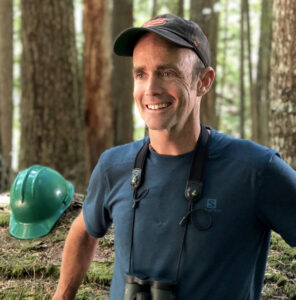Dr. Matthew Betts
College of Forestry at Oregon State University
Dr. Matthew Betts is a professor of wildlife and forest ecology in the Dept. of Forest Ecosystems and Society in the College of Forestry at Oregon State University, where he has taught both undergraduates and graduates about forest biodiversity and management for 15 years. He has a Bachelor of Science and PhD from the Faculty of Forestry and Environmental Management at the University of New Brunswick in Canada, and a postdoc (Biological Sciences) from Dartmouth College in New Hampshire. His research focuses on plant and animal responses to forest management activities at local, regional, and global scales. He is the lead investigator for the Oregon Intensive Forest Management project, Lead Scientist for the HJ Andrews Experimental Forest LTER, and the director of the Oregon State University Forest Biodiversity Research Network. He is the author of over 120 peer-reviewed publications (including in the journals Science and Nature), and his work has been profiled in the New York Times, Washington Post, National Public Radio, CBC, National Geographic, and Scientific American. His work is primarily funded by the National Institute for Food and Agriculture and the National Science Foundation.
Abstract: Rising global wood demand comes with substantial risks for forest biodiversity. Expansion of high-yielding tree plantations could free up forest land for conservation if this is implemented in tandem with stronger policies for conserving native forests. However, plantations and other intensively managed forests may support far less biodiversity than unmanaged or ecologically managed forests. In this talk I will present recent findings from a long-term experimental study that examines biodiversity and ecosystem service tradeoffs associated with forest management intensification. Second, I will summarize the long-term, regional-scale impact of intensive management on biodiversity in the Maritime Provinces of Canada. Finally, I will discuss the prospects for “Triad” forestry – that attempts to use a suite of intensive and ecological forestry along with reserves to minimize tradeoffs between wood production and biodiversity conservation.

